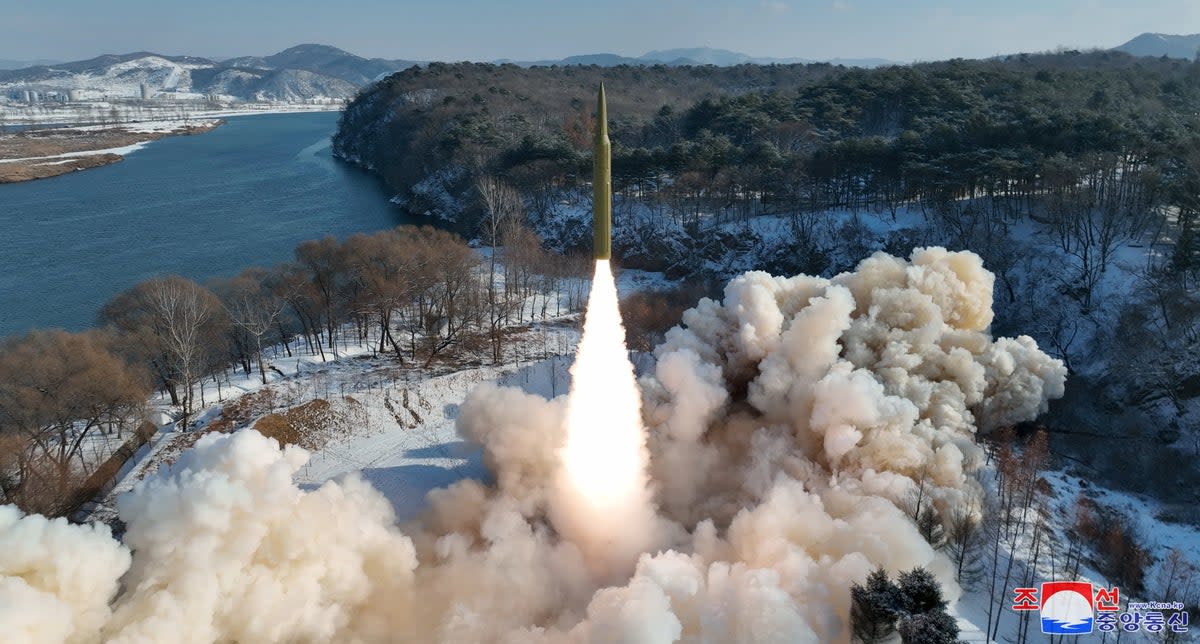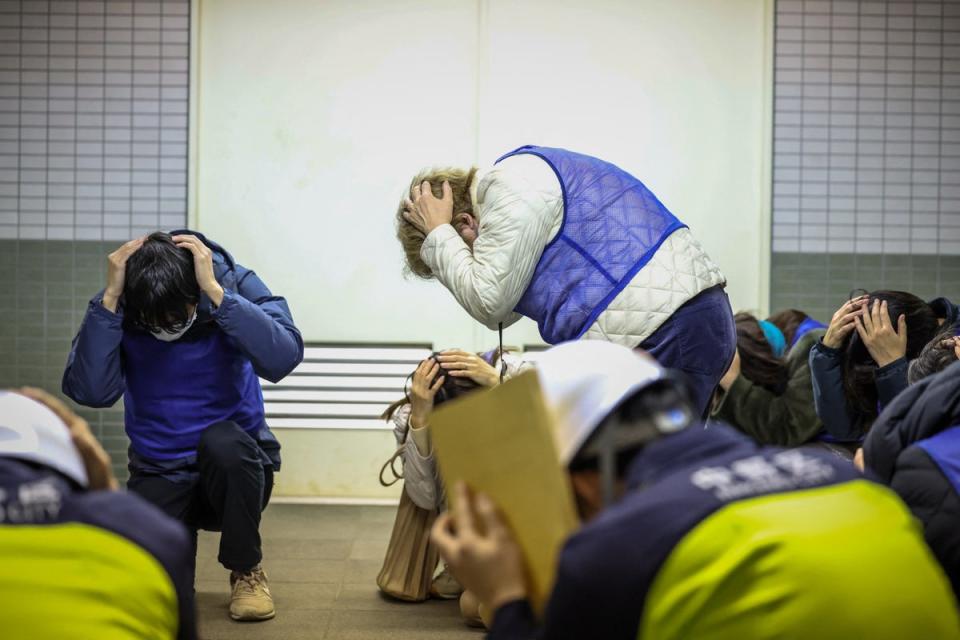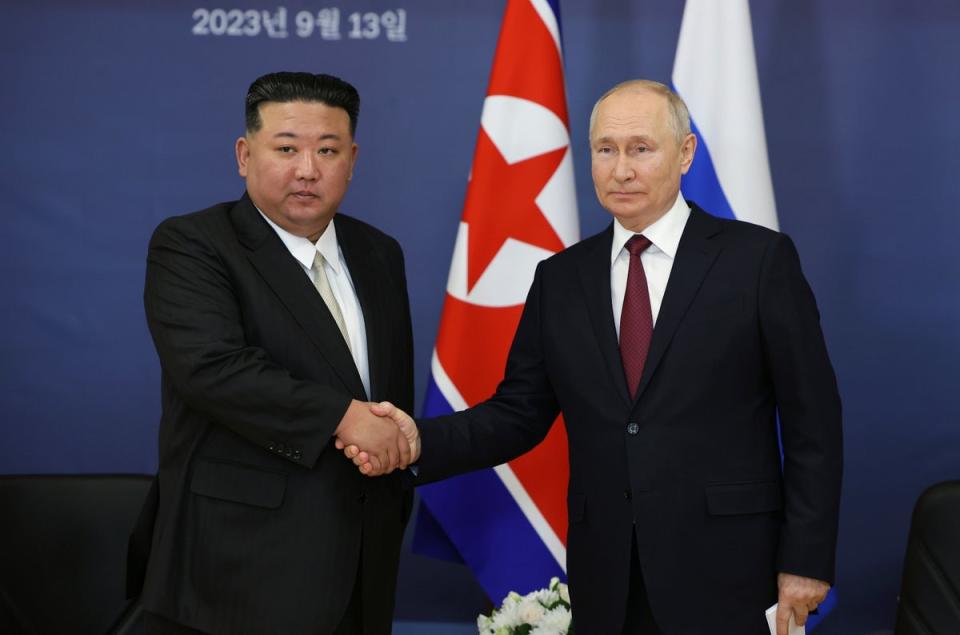North Korea says it has tested new hypersonic missile that could reach Japan and US Pacific bases

North Korea said it tested a new intermediate-range solid-fuel hypersonic missile, its first launch of 2024 with a projectile that can reach US bases in Asia.
The missile was fired from a launch site near Pyongyang towards waters off the east coast at about 2.55pm local time (0555GMT) on Sunday, the South Korean military said.
It flew about 1,000km (600 miles) at a maximum altitude of at least 50km (30 miles), Japanese and South Korean officials said.
The test fire was aimed to verify the “reliability” of new multi-stage, high-thrust solid-fuel engines and an intermediate-range missile loaded with a hypersonic maneuverable controlled warhead, state media KCNA said.
Despite their name, analysts say the main feature of hypersonic weapons is not speed – which can sometimes be matched or exceeded by traditional ballistic missile warheads – but their manoeuvrability, which can help the warhead evade missile defences.
Pyongyang said the launch was successful and it did not affect the security of any neighbouring country.
The missile’s range meant it could theoretically hit all of Japan as well as US military bases in Guam. Hypersonic missiles typically launch a warhead that travels at more than five times the speed of sound, or about 6,200km per hour (3,850mph), often manoeuvring at relatively low altitudes.

The US, Japan and South Korea condemned the launch, which was in violation of UN Security Council resolutions, and the nuclear envoys of the three countries held a joint phone call.
South Korea‘s military said direct provocations by Pyongyang would be met with an “overwhelming response”.
The latest launch comes against a backdrop of ratcheting tensions in the Korean peninsula, marked by Pyongyang’s successive intercontinental ballistic missile launches and the deployment of its inaugural military spy satellite following Kim Jong-un’s visit to Russia.
The launch also coincided with North Korean foreign minister Choe Son Hui’s visit to Moscow to meet Russian counterpart Sergei Lavrov on Monday.

Even as it launched its latest missile, in an op-ed run by KCNA on Monday accused Seoul of escalating tensions in the region with joint US military drills.
“Even a little spark can be a catalyst for enormous physical conflicts between the two most hostile countries,” the commentary said.
Mr Kim vowed to expand North Korea’s nuclear weapons arsenal as he presided over an annual meeting of his ruling party at the end of December.
The leadership has recently announced changes to designate the South as a separate, enemy state, breaking with decades of policy, with Mr Kim saying peaceful reunification is no longer possible.
Additional reporting by agencies


